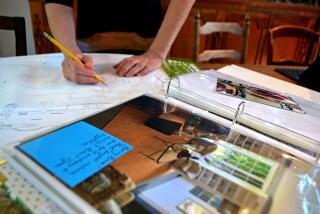Making It Easier on the Kids
Children usually donât like change. The situation that preceded the stepfamily--divorce or the death of a parent--only makes children more vulnerable to upheaval.
âLet them know you know any kind of change is going to be hard,â said Emily Visher, co-founder of the Stepfamily Assn. of America. (215 Centennial Mall South, Suite 212, Lincoln, NE 68508-1834; [800] 735-0329). âIf itâs a move, there are going to be some advantages. Think about what they are ahead of time so you can point them out.â
* Include your children in decisions involving the house. Let them choose the colors of their rooms and select curtains and bed furnishings. âThe more control you have, no matter what age you are, the happier youâll be,â Visher said.
* Children donât like to be cut off from their pasts. Although a photo of your new spouse with his ex and their children might make you queasy, it may be important to the child. A good solution: Display photos of the nonresidential biological parent in the childâs room.
* If there is no room for a nonresidential child who visits occasionally, at least let him or her have a dresser drawer that nobody else can touch without permission.
* Be sensitive to how you express things around children. Visher recalls a boy who slept in his stepfamilyâs guest room during his visits asking her: âWhy do they always have to say itâs the guest room? Why canât they say itâs my room, which guests can use when Iâm not here?â
* Give children who live part-time at two houses some transition time to adjust to the new environment. âOur two households were very different in the way we approached life and values,â said Bonnie Juroe, a stepmother and family therapist. âMy stepchildren needed some time to themselves, which required privacy. They also needed time to gather themselves as they assimilated into the next household.â
* Hold family meetings. âStepparents have to find ways to listen to the kids and not get so caught up in their own stuff that they forget the kids have important issues in their lives,â said Marilyn Wyman, a family therapist.
Wyman and her husband, who had up to six children living in their Palos Verdes Estates home, held twice-weekly âPIBâ (pain in the butt) meetings. A ceramic pumpkin jar became the PIB pot, and grievances were slipped into the pot between meetings. âWeâd discuss each complaint and all try to think of ways to resolve it,â Wyman said. âSometimes, the same PIBs popped up. But it took the pressure off all of us.â


